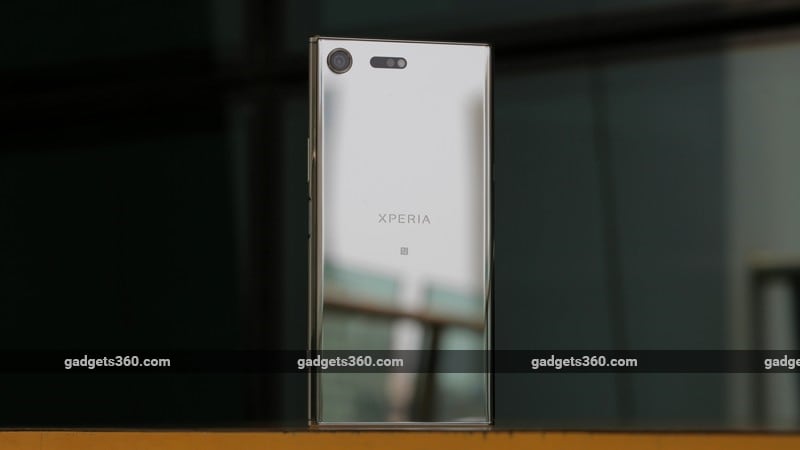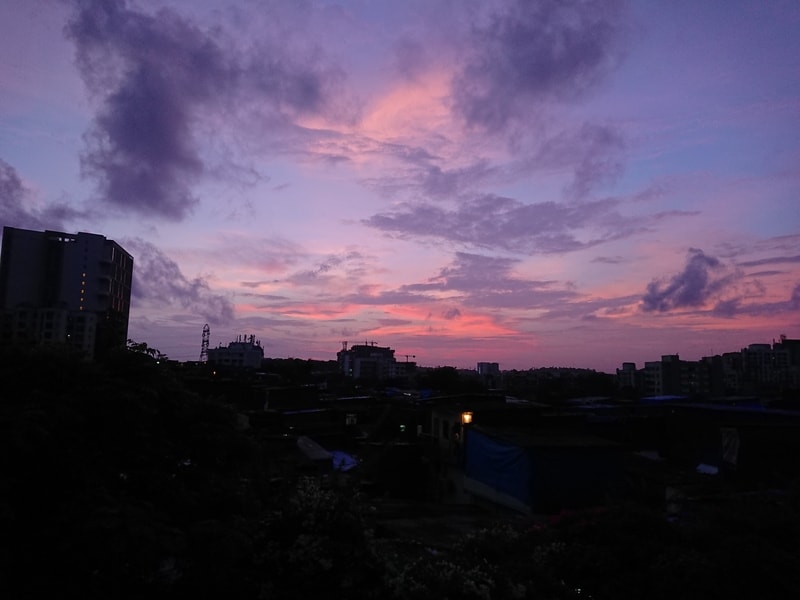Sony Xperia XZ Premium Review

HIGHLIGHTS
- The Sony Xperia XZ Premium has a 4K HDR display and Snapdragon 835 SoC
- Performance is very good with no overheating issues
- The Sony Xperia XZ Premium is priced at Rs 59,990
While the Sony Xperia XZs (Review) was a treat to review thanks to its wonderful camera, it was still tough to recommend to anyone, because of how much it overheated all the time. Now, Sony has launched an even higher-end offering in India called the Xperia XZ Premium, which costs roughly Rs. 10,000 more than the Xperia XZs.
For this premium (pardon the pun), you get the brand new Snapdragon 835 SoC, making this the first phone in India to feature Qualcomm's latest and greatest, as well as a 4K HDR display, which is the first of its kind in the world. The Xperia XZ Premium is the successor to the Xperia Z5 Premium, which was the first phone to ship with a 4K display. That was two years ago, and now Sony has added HDR into the mix to keep up with the times.
The pricing of Sony’s new offering is true to its name, and at nearly Rs. 60,000, it competes directly with the Samsung Galaxy S8+ (Review). It's time to see if Sony's new offering can stand up to Samsung's flagship, but more importantly, has Sony managed to fix the overheating issue that’s plagued Xperia flagships for the past few generations? Let’s begin.
Sony Xperia XZ Premium design and build quality
Aesthetics is a very subjective matter, and preferences vary wildly from person to person, but the ‘Luminous Chrome’ finish of our Xperia XZ Premium review unit is by far one of the most outlandish choices we’ve comes across. It’s highly reflective, and is a pain to keep clean. The back of the phone literally doubles up as a mirror. The chrome dressing also means it’s incredibly slippery when used with one hand. This Sony Xperia XZ Premium is also a lot heavier than the XZs at nearly 190g, and feels quite chunky. Sony seems to be stuck in a design rut which it simply cannot (or refuses to) break out of. The thick borders around the screen don’t exactly scream 2017.
Build quality on the Sony Xperia XZ Premium is still excellent thanks though to a metal frame and Gorilla Glass 5 on the front as well as the back. The phone is also IP65/68 rated for water and dust resistance. What we didn’t like are the plastic sides that dilute the premium feel of this phone, especially since you end up in constant contact with them when holding this phone. Button placement is fine, with the power button falling comfortably in line with your thumb (or middle finger if you’re left handed).

There’s a flap on the left for the SIM cards. You have to use a fingernail to dig out the tray for the primary SIM, but the outer flap is connected to the second hybrid-SIM tray. While this is inconvenient, it shouldn't be a major issue unless you swap SIMs often. What's worse is that the phone needs a reboot each time you open up the flap, which is annoying if you swap out microSD cards a lot.
The physical ports on the Sony Xperia XZ Premium are the same as the on the Xperia XZs, so you have a USB 3.0 Type-C port at the bottom and a 3.5mm headphones socket on the top, plus a dedicated shutter release button on the right. The Xperia XZ Premium also has stereo speakers that face forwards.
The reflective back just bears an Xperia logo and the NFC icon. There’s a metal ring around the camera module that juts out slightly but not enough to create an ugly bulge. In the box, apart from the Sony Xperia XZ Premium, you get a Quick Charge 3.0 compatible charger, a data cable, a stereo headset (which wasn’t included with our review unit), and a start-up guide.
The 5.5-inch display on the Xperia XZ Premium has a whopping 2160x3840 resolution, pushing the density to 801ppi. To put this into perspective, the Samsung Galaxy S8 has a density of around 567ppi. While this looks very attractive on the spec sheet, in reality, you will spend most of your time looking at full-HD output (which is about 403ppi) rather than the native 4K. Sony tells us that the UI and all apps run at full-HD resolution, and it’s only when you play a 4K video that you take full advantage of the native resolution.

This explains why benchmarks detect the screen’s resolution as 1080p - the phone seems to prevent them from seeing and adapting to the actual resolution of the display. Rendering everything at 4K all the time would take a heavy toll on battery life, which wouldn’t have been good for anyone. Having said that, this is still a very good smartphone display even at 1080p, with razor-sharp text and vivid colours. This being a Sony, you get to choose between colour profiles (TRILUMINOS, sRGB, or Super-vivid), adjust the white balance, and choose whether or not to enable video image enhancement.
Sony Xperia XZ Premium specifications and features
The Xperia XZ Premium has up-to-date specifications, starting with the very capable Snapdragon 835 SoC, which succeeds the Snapdragon 821 still used in many of this year’s flagships. The new chip has eight cores versus four on its predecessor, but more importantly, if should be a lot more efficient in terms of battery usage thanks to the smaller fabrication process that it’s built on. It also supports the newer UFS 2.1 storage system, a Gigabit LTE modem, Bluetooth 5.0, and Quick Charge 4.0. While the SoC might support these features, it’s ultimately up to each OEM to implement them, and you do get dual-band Wi-Fi 802.11 a/b/g/n/ac, Bluetooth 5.0, NFC, USB-OTG, and 4G with VoLTE. However, there’s no FM radio or wireless charging.
The phone also has 4GB of RAM and 64GB of storage, which should be enough for a lot of people. You can expand storage using a microSD card of up to 256GB in the second SIM slot.

Benchmark results for the Sony Xperia XZ Premium were excellent, as expected, but do note that they all ran at 1080p and not the native 4K resolution. In AnTuTu, we got a score of 174,482 points, while GFXBench's T-rex run maxed out at 60fps. Even after a long gaming session, the phone surprisingly didn’t overheat, which could be down to the efficient SoC.
Just like the Xperia XZs, the Xperia XZ Premium ships with the current version of Android Nougat (7.1.1) with Sony’s own custom treatment. Sony has preinstalled its own apps for music, video and photos, along with SonyLIV, Lounge, PlayStation, News, What’s New, and Video & TV SideView. Lifelog lets you keep track of your activity including steps taken, calories burnt, etc. Some UI elements like the notifications shade and app switcher are all stock Android. The Settings app gets additional features for pairing the phone with a DualShock 4 controller, changing the theme, etc. We’ve talked about the UI features in our Xperia XZs review.
Sony Xperia XZ Premium performance, cameras, and battery life
General UI and app performance is excellent, and we didn’t face any stutter or slow-downs even after filling the phone with apps and media files. The Sony Xperia XZ Premium doesn’t have the most ergonomic design so using it on the go can be quite cumbersome, and the chrome finish doesn’t help much with the grip either. 4G works well and we didn’t have any issues with call quality. We also managed to run through games like Asphalt 8 and Implosion with smooth framerates. The most annoying thing about this phone is that the phone reboots every time you open the side flap, and even when you switch cellular data between SIMs via the Settings app. Sony tells us that this was intentionally put in place as a 'security measure', although we’re not sure we buy this.

The HDR display does have a noticeably better colour gamut than comparable non-HDR displays. We tested this with some sample clips from YouTube, and we found performance on the Sony Xperia XZ Premium to be a bit better compared to the display on the Galaxy S8+, delivering slightly better details in the highlights.
Audio performance on the Xperia XZ Premium is equally good through headphones, with a set of useful enhancements like ClearAudio+ and Surround sound (VPT) to take advantage of. You can fine tune the frequencies with EQ presets or set it manually. You don’t have to worry about blocking the speakers with your palms since they face forward, however, the volume doesn’t get very loud.
The cameras on the Xperia XZ Premium are pretty much the same as they are on the Xperia XZs. On the back, you get a 19-megapixel Motion Eye camera with a stacked sensor, which allows you to capture video at 960fps for a super-slow-motion effect. The camera captures about one second's worth of footage and then stretches it to about five seconds, which is fun to play with. You also get 5-axis stabilisation for the front and rear cameras, 4K video recording, and the ability to launch the camera app and capture an image by simply holding the shutter button down.
Details and colour reproduction are very good in landscapes and macros taken in daylight. You can see a bit of JPEG compression artifacting when you zoom in all the way, but normally, it’s not something you’ll notice. Focusing is quick, and this works very well in video recording when shifting between different subjects. The sensor captures a wide gamut of colours pretty accurately, which is evident when capturing scenes like the evening sky. Low-light shots are handled well too with little noise, although details take a bit of a hit.
The front camera on the Sony Xperia XZ Premium has a 13-megapixel sensor with a relatively wide f/2.0 aperture, which produces decent results even indoors. Unlike the Xperia XZs, the XZ Premium doesn’t overheat when recording 4K videos. We managed to go beyond 10 minutes of continuous recording outdoors without getting any temperature warning messages, which is big achievement for Sony. You also have the option to switch to the more efficient H.265 codec, also known as HEVC, for recording video.
The 3230mAh battery on the Sony Xperia XZ Premium offers a full day's worth of regular usage but if you watch a lot of videos then your mileage will be less. In our HD video loop test, we got 9 hours and 4 minutes of playtime, which is a little less than what we got with the XZs and significantly less than what other flagships including the Samsung Galaxy S8 and S8+ deliver. The phone also supports Quick Charge 3.0 and Qnovo Adaptive charging standard.

Verdict
With the heating issues that plagued its predecessors out of the way, Sony's newest flagship is a legitimate competitor to the Samsung Galaxy S8 and Galaxy S8+. The Sony Xperia XZ Premium is just as powerful, has an excellent display, is waterproof, has decent battery life, and offers a very good set of cameras. Its main weaknesses are its aesthetics and ergonomics, and the new Samsungs smoke the Xperia in this regard. We really hope to see a more modern design language in Sony’s next generation. The chrome finish might tempt some buyers but isn’t practical for real-world usage, so we highly recommend you look at the other colour options if you’re considering buying this phone.
At the time of writing this review, the Sony Xperia XZ Premium is priced at Rs. 59,990, which seems a bit on the higher side considering that there's only a relatively small spec bump compared to the Xperia XZs. If Sony hopes to push good number of units off the shelf, then it needs to get more aggressive with pricing, as the Galaxy S8 would undoubtedly look more attractive to buyers.




No comments:
Post a Comment